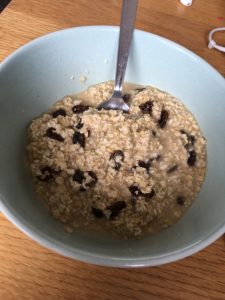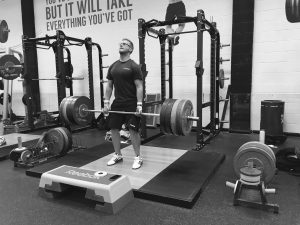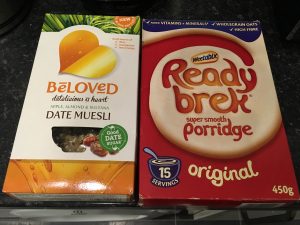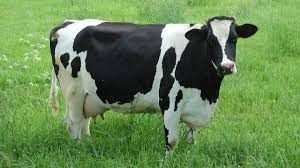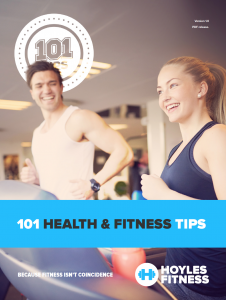Breakfast is the Most Important Meal of the Day?
Breakfast is the Most Important Meal of the Day?
I hate nonsensical absolutes in fitness and nutrition. One of them being ‘breakfast is the most important meal of the day’.
Is it? Why?
‘Breakfast is the most important meal of the day’ is one of those statements that has been repeated so many times, by so many people that it seems to have become accepted as truth.
See here’s the thing about ‘meal times’….
They don’t exist. They’re a social invention, based around the working day. What we think of as meal times are there purely because it was the most pragmatic pattern of eating around our shifts at work. Think about the pattern…
Breakfast: Wake up hungry and you’d need to eat before work.
Lunch: Worked for a few hours, hunger builds up. Have a break and eat.
Evening meal: You’ve worked for a few more hours and hunger comes back. Finish work for the day and eat your evening meal.
On reflection, it’s pretty obvious, don’t you think? Our meal times aren’t down to some biological hardwiring, built into us over millennia. No, it’s as simple as our working lives dictated our eating patterns. These became social norms and they stuck with us.
Nature takes care of letting us know when it’s meal time…
Over the last couple of million years, nature has figured out a pretty perfect system for telling us when it’s time to eat.
It’s called hunger. You may be familiar with it.
If you’re hungry first thing in the morning, or you simply can’t function without eating upon waking, go ahead and eat breakfast.
If you’re not hungry, then don’t eat breakfast. It won’t do you any harm. You won’t starve to death because you’ve missed breakfast. You’ll still function perfectly well. Here’s a mathematical explanation in case you wanted to see how much stored energy we really have…
Let’s take an average 85kg man with 17% body fat.
His 17% body fat means he has 14.45 kg of stored fat.
Per gram of fat, there are 9 calories.
14,450 x 9 = 130,050 calories in stored fat.
Let’s take that a step further. If we assume said man requires 2,000 calories per day to survive, he has enough energy stored in fat to keep him going for over 65 DAYS!
Safe to say, missing breakfast isn’t going to do our hypothetical breakfast-avoider any harm.
Is skipping breakfast a dietary nightmare? The science…
Personally, I’ve never been a regular breakfast eater. I didn’t subscribe to the ‘breakfast is the most important meal of the day’ mantra – mostly because I don’t feel hungry in the morning, so surely my body doesn’t always need the food?
Often my first food of the day will be around 11.00am (bear in mind I wake up at 5.30) – hardly breakfast is it?
It’s working pretty well for me so far.
Over the years, science has backed up my thinking. If we put the ‘breakfast is the most important meal of the day’ statement to the test in the scientific arena, the results contradict the dogma.
Here are a couple of high-profile recent studies on breakfast…
Dhurandhar et al (2014)
This team studied 283 participants to see if eating breakfast made any significant difference to their weight loss. This was to test the theory that eating breakfast helped people to lose weight, as prescribed by popular opinion.
They concluded that there were no discernible effects on weight loss by eating breakfast. You can see more information on the study here.
Bath Breakfast Study (2014).
In the Bath Breakfast Study, Betts et al studied two groups of people – one group had to eat 700 calories by 11:00 daily for six weeks, with at least the first half consumed within two hours of waking.
The other group had to stay fasted until 12.00pm.
The conclusion was that the group who ate breakfast were typically more active throughout the rest of the day (but this could be down to lifestyle factors in place before the study i.e. they were already undertaking exercise), however the non-breakfast eaters still consumed an average of 20% fewer calories per day than the breakfast eaters.
This is worth baring in mind if you are looking to lose weight.
Importantly, in neither study did the researchers notice any improvement in cardiovascular health markers.
So why do so many people say breakfast is the most important meal of the day?
Good question. In part it’s thanks to the EatWell plate (the less said about this the better) and questionable assumptions based on untested hypotheses. Also, as a group, nutritionists don’t really help themselves with the massively mixed messages they put out!
Nutrition is complicated to most people because the very people who teach nutrition or share information don’t really agree on a nutrition stance. I’m fairly sure you’ll have heard a few of these bits of advice. Talk about contradictions…
Eat low fat. No don’t eat low fat, eat low carb instead. Fast. No, don’t fast, eat 6 meals per day. Actually, don’t do that, just don’t eat carbs after 6. Actually, scrap that – you should be vegetarian. Nah, ignore that, go Paleo. Don’t be Paleo, you need to be Ketogenic. No you don’t, you need to be vegan. Hang on, maybe you should only eat fish. No, eat everything, as long as it’s raw. Don’t eat dairy. Do eat dairy. Only eat organic. Don’t eat organic.
And so on.
No wonder people are confused. It’s confusing enough for those of us who work in the field.
So what makes a good breakfast?
As a start point, I personally like a high protein breakfast. There are some high profile proponents of a high-protein breakfast such as Tim Ferriss, who recommends a couple of eggs within 30 minutes of waking.
My suggestion of protein is down to personal preference – I know I function pretty well on the low-ish carb, high protein and moderate fat mix.
If I can’t have a protein-based breakfast, my next choice will be a smoothie of some sort. Usually fruit-based. These are so simple to make – throw a mixed load of fruit into a blender (I use this multi-use one from Philips) and a little water or ice and blend it into a smooth texture.
On the rare occasion I’m hungry in the morning, or if I have a long duration exercise session ahead of me in the morning (such as a long distance bike ride), I like to have this dairy-free apple and raisin porridge.
I’m not typically a fan of breakfast cereal and especially not a fan of cereal bars. As far as I can see they are basically sugar in bar form.
These are my thoughts though – you may find you have other preferences.
Finally, here’s my take on the breakfast is the most important meal of the day issue…
There is no ‘most important meal of the day’.
Eat when you’re hungry – if that is upon waking, eat then. Don’t force yourself to eat if you don’t want to, just because ‘wisdom’ suggests you should.
When you do eat, eat until you’re satisfied, not until you’re stuffed (Christmas Day is excluded from this – on Christmas Day eating until you’re stuffed is the law).
Where possible, eat real foods (meat, fish, eggs, fruit, vegetables).
Base your meals around a good protein source, particularly if you’re active. Drink enough water to keep your urine clear (not golden).
Eat a lot of vegetables (around 50% of your plate), a sensible amount of natural (potatoes, rice, squash, sweet potato) carbohydrate, a couple of portions of fruit and keep your processed sugars limited.
Do this at a time that suits you.
If you’re not hungry in the morning, don’t force yourself to eat breakfast. If you prefer to only eat once per day, do it.
If you prefer 6 small meals per day, do that.
One thing that most people in nutrition agree on is that you must keep an eye on your calories. Regardless of your food choices, excess calories are excess calories.
A cow eats grass all day. There aren’t many calories in grass, yet have you ever seen a skinny cow?
Me neither.
You can keep a pretty good eye on your calories by using the My Fitness Pal app.
Conclusion
We all work and respond to various foods in our own unique ways. Understanding how you and your body works is pretty fundamental to getting the most out of your body as a machine.
I know if I eat too much carbohydrate I end up sleepy, yet clients of mine need to eat a huge amount of carbs to function. I crave a lot of protein, yet I have clients who are over-faced by the thought of more than a couple of meat-based meals per week.
I lack the discipline to eat 6 small meals per day. I’m a big portion kind of guy, so I’m always better on 2-3 larger meals, certainly from an eating behaviour point of view. A couple of my clients are small eaters so take more of a snack-based approach to eating.
I hate absolutes. I don’t agree with them because in 11 years training people for a living, I’ve never seen a single one of the nutrition ‘rules’ hold true for everyone.
Find out what works for you with experimentation. When you find the approach that suits you, stick with it.
And no, you don’t always have to eat breakfast. Even if your Mum tells you otherwise.
Breakfast is the most important meal of the day? Don’t think so…
I hope this article has provided a little clarity on the issue. If it has, share it with friends!
